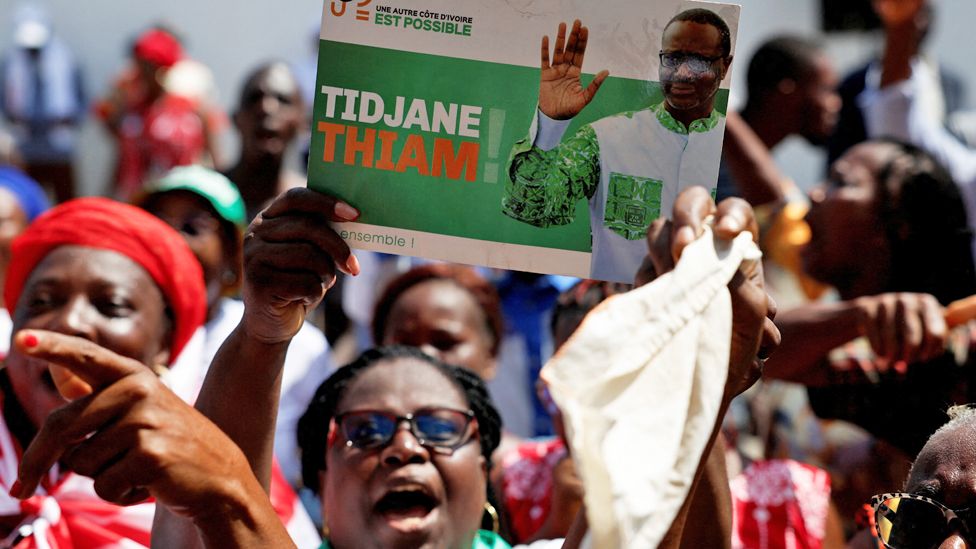Is Ivory Coast’s Red Card Politics an Own Goal for Democracy after Tidjane Thiam’s Ban?
The vibrant economic landscape of Ivory Coast, renowned as a leading producer of cocoa and a hub for talent, is facing political turbulence as the nation gears up for its presidential elections scheduled for October. Among the key figures in this political drama is Tidjane Thiam, a former global finance executive who is grappling with unforeseen challenges as he aims for the presidency.
Thiam’s aspirations came to an abrupt halt when a court ruled on April 22 that he had forfeited his Ivorian citizenship due to his acquisition of French nationality years ago, a decision that raises questions about the integrity of the electoral process in the country. Having returned to Ivory Coast in 2022 after a notable international career, Thiam was quickly seen as a leading candidate to succeed President Alassane Ouattara, who is in his final term.
The Ascendance of Tidjane Thiam
Thiam’s lineage ties him to the late President Félix Houphouët-Boigny and offers him a rich background in Ivorean politics, having served as a minister in the 1990s. His professional journey has included prominent roles, such as CEO of Prudential and Credit Suisse. After the passing of former President Henri Konan Bédié in 2023, Thiam was selected as the Democratic Party of Ivory Coast’s (PDCI) candidate on April 17. However, the court ruling poses a significant hurdle.
A Steep Hill to Climb
The absence of Thiam robs the electoral landscape of a credible competitor to President Ouattara, who, backed by the ruling party and an economic growth record of over 6% annually, appears well-positioned to pursue a fourth term. This situation not only highlights Thiam’s unique candidacy but also raises concerns regarding overall voter disillusionment with the political establishment.
Effects of Exclusion
| Candidate | Status | Political Party |
|---|---|---|
| Tidjane Thiam | Banned from running | PDCI |
| Laurent Gbagbo | Excluded due to past convictions | Opposition |
| Guillaume Soro | Excluded due to past convictions | Opposition |
| Charles Blé Goudé | Excluded due to past convictions | Opposition |
The exclusion of prominent figures like Thiam, Gbagbo, Soro, and Blé Goudé from the electoral race underscores a troubling trend that has deeper roots in the history of Ivorian politics, particularly concerning the contentious issue of identity politics.
The Historical Context
The political climate is reminiscent of events from the late 1990s and early 2000s, where identity laws effectively barred candidates like Ouattara from participating, leading to significant national strife. Despite prevailing peace, the current situation echoes those earlier crises, with legal restrictions reshaping the electoral landscape and stifling democratic engagement.
Looking Ahead
As Ivory Coast moves toward the elections, the implications of Thiam’s exclusion could either galvanize public discontent or reinforce apathy among voters. With a majority of the populace under 35, the rise of anti-political sentiments, exacerbated by the existing challenges, is something that cannot be overlooked.
Thiam continues to advocate his Ivorian identity, emphasizing the absurdity of the situation — questioning if the national football team should also be penalized due to some players holding dual nationality. As legal discussions unfold, with hopes for a political compromise still up in the air, the future of Ivorian democracy teeters precariously on the edge of a red card.


